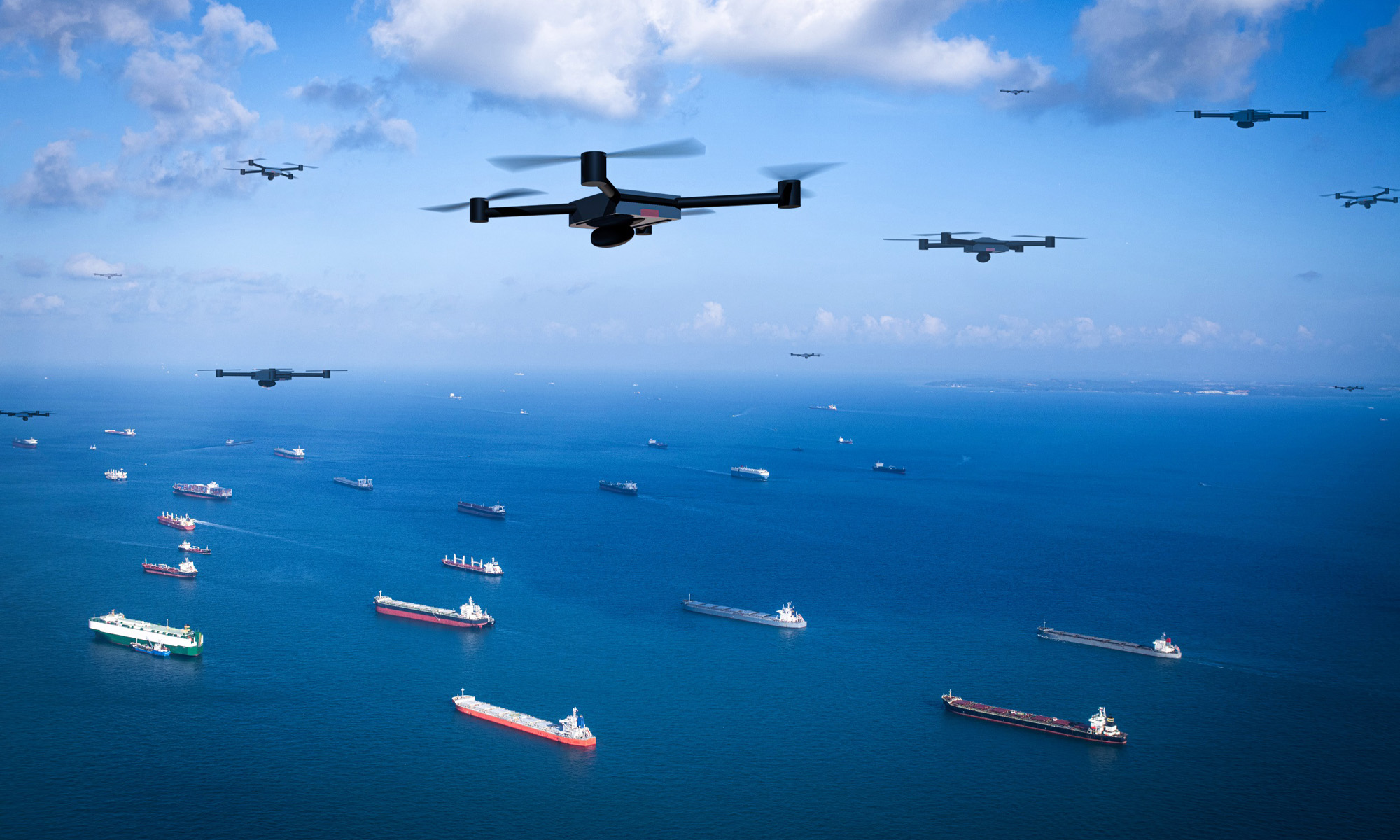News
Robot UAVs Set To Revolutionize Abu Dhabi Maritime Patrols
In a few weeks, robotics experts will compete to create the best autonomous drone to detect criminals along Abu Dhabi’s coastline.

This year, the Mohammed bin Zayed International Robotics Challenge (MBZIRC) Maritime Grand Challenge will pit five elite teams of robotics specialists against one another in the ultimate showdown.
Handpicked from a pool of 52 contenders, the scientists will gather on Yas Island, Abu Dhabi, to solve real-world maritime issues, encompassing problems like illicit fishing, smuggling, and human trafficking, all through the deployment of autonomous drones. Launched in 2017 by Khalifa University, the competition is jointly hosted by ASPIRE and Abu Dhabi’s Advanced Technology Research Council (ATRC).
The scientists’ missions will include tasks such as autonomous target inspection and identification aboard vessels without relying on GPS, object retrieval via drones, and seamless collaboration between UAVs and robotic manipulators.
Professor Lakmal Seneviratne, Director of the Centre for Autonomous Robotic Systems (KUCARS) at Khalifa University, remarked, “We can train our robots and AI to do many things in a very controlled environment,” adding, “For example, factory automation has been around since the 1980s in highly controlled environments. But when you go out into the real world, the uncertainty is huge. So the adaptability and algorithms of our robots are the key aspects to look at in this challenge”.
Also Read: Saudi Arabia Plans Huge Adventure Tourism Oil Rig Facility
Dr. Irfan Hussain, team leader of Fly Eagle, one of the finalists, explained that adaptability will be crucial to win the contest. “They have only a few days to adapt to the environment here, and many parameters are still unknown until the day of the challenge,” says Dr. Hussain. “So their algorithms and their approach need to be robust enough to complete the task regardless of the conditions”.
The unpredictability of the scenarios mirror real-world conditions at sea, where turbulent weather could hamper the missions of autonomous drones tasked with detecting illicit vessels, and GPS signals might also falter in such circumstances.
Come the first week of February, the five finalists will vie for a coveted first-place prize of $2 million to bring their groundbreaking innovations to production.
News
Samsung Smart Glasses Teased For January, Software Reveal Imminent
According to Korean sources, the new wearable will launch alongside the Galaxy S25, with the accompanying software platform unveiled this December.

Samsung appears poised to introduce its highly anticipated smart glasses in January 2025, alongside the launch of the Galaxy S25. According to sources in Korea, the company will first reveal the accompanying software platform later this month.
As per a report from Yonhap News, Samsung’s unveiling strategy for the smart glasses echoes its approach with the Galaxy Ring earlier this year. The January showcase won’t constitute a full product launch but will likely feature teaser visuals at the Galaxy S25 event. A more detailed rollout could follow in subsequent months.
Just in: Samsung is set to unveil a prototype of its augmented reality (AR) glasses, currently in development, during the Galaxy S25 Unpacked event early next year, likely in the form of videos or images.
Additionally, prior to revealing the prototype, Samsung plans to introduce…
— Jukanlosreve (@Jukanlosreve) December 3, 2024
The Galaxy Ring, for example, debuted in January via a short presentation during Samsung’s Unpacked event. The full product unveiling came later at MWC in February, and the final release followed in July. Samsung seems to be adopting a similar phased approach with its smart glasses, which are expected to hit the market in the third quarter of 2025.
A Collaborative Software Effort
Samsung’s partnership with Google has played a key role in developing the smart glasses’ software. This collaboration was first announced in February 2023, with the device set to run on an Android-based platform. In July, the companies reiterated their plans to deliver an extended reality (XR) platform by the end of the year. The software specifics for the XR device are expected to be unveiled before the end of December.
Reports suggest that the smart glasses will resemble Ray-Ban Meta smart glasses in functionality. They won’t include a display but will weigh approximately 50 grams, emphasizing a lightweight, user-friendly design.
Feature Set And Compatibility
The glasses are rumored to integrate Google’s Gemini technology, alongside features like gesture recognition and potential payment capabilities. Samsung aims to create a seamless user experience by integrating the glasses with its broader Galaxy ecosystem, starting with the Galaxy S25, slated for release on January 22.


























